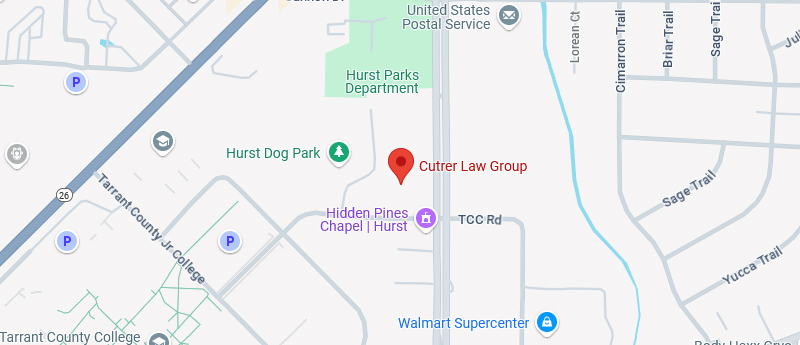What Is the UIFSA and How Can It Help Me?
When one parent, who’s court-mandated to pay child support, moves or flees to another state, the individual may believe that the child support order is no longer enforceable; this is not the case, however.
Most states will generally work with each other to collect back child support that’s legally mandated, allowing the custodial parents to get the support their families need. Although the Uniform Interstate Family Support Act has made this process much easier, it can still be challenging and requires skilled, experienced legal help from a professional, compassionate child support lawyer.
The Uniform Interstate Family Support Act (aka UIFSA) is a well-drafted legal framework for enforcing child support orders across state lines. Many states, including Texas, have adopted this Act, which allows for enforcing child support orders issued by one state in another.
So, if you’re an obligor (the parent who pays the child support) or an obligee (the spouse receiving the child support) who lives in Texas, then the state’s family courts can enforce your out-of-state child support order.
Although this process has been legally simplified due to the uniformity of state child support enforcement laws, navigating it without professional legal assistance can still be challenging and confusing.
How Does the UIFSA Operate in Texas?
In Texas, the UIFSA is embodied in the Texas Family Code. The Act comes into play when you file a family law case in Texas that involves parties residing in different states. It has the authority to enforce an out-of-state child support or custody order, among other things.
However, the legal process can be daunting. If you must enforce an out-of-state child support order in Texas, you must ensure that Texas has personal jurisdiction over the out-of-state parent.
In Texas, in most cases, the family court may exercise personal jurisdiction over an out-of-state or non-resident party if one of the following criteria is met:
- The non-resident party must be served with process within Texas.
- The non-resident party must consent to Texas’s jurisdiction, formally enter a general appearance, or file a legal responsive document with the Texas family court.
- The non-resident party must have resided with the child in Texas.
- The non-resident party resided in Texas and provided prenatal expenses or support for the child.
- The child must reside in Texas due to the acts or directives of the non-resident party and more.
If no court-mandated criteria are met, you will usually have to enforce the child support order in the issuing state.
However, if one or more of the above criteria (or more) are met, you must register the child support order in Texas, legally notify the other parent, and give the noncustodial parent twenty days to respond.
At this point, the noncustodial parent and their lawyer may dispute the child support enforcement based on jurisdiction or some other legally relevant reason.
Therefore, enforcing out-of-state child-related orders can still be extremely complex in most cases, but due to the UIFSA, it is legally possible.
So, the wise and prudent path to take if you are filing for enforcement of an order in Texas and dealing with interstate child support or custody issues is to have knowledgeable, professional legal guidance to understand the full scope and benefit of the UIFSA.
What Legal Options May My Lawyer Use for Out-of-State Enforcement of Child Support?
If one parent lives outside of Texas and owes child support, your compassionate and well-versed child support lawyer has several legal tools for enforcing the order across state lines. As stated, in Texas, these cases are primarily governed by the Uniform Interstate Family Support Act.
Most enforcement options for out-of-state cases mirror those available in Texas, as most states have passed their version of the Uniform Interstate Family Support Act (UIFSA).
Just a few of the main legal strategies your lawyer may use are:
- Registering the Texas Support Order in the Other State – Your lawyer will file the existing Texas child support order where the noncustodial parent (the obligor) lives. Once registered, the order can be enforced like a local court order in that state. Then the other state can:
- Garnish the parents’ wages.
- Intercept tax refunds they may receive.
- Suspend the licenses they hold.
- Seize assets and more.
- Wage Withholding Orders Across State Lines – Using the UIFSA, Texas can issue a direct income withholding order to the spouse’s employer in another state without going through the court.
- Interstate Enforcement Through the Texas Office of the Attorney General (OAG) – The Child Support Division of the Texas OAG works with the child support agency in the other state to enforce the order. This collaboration of effort could include:
- Locating the other parent.
- Drafting or modifying support orders.
- Enforce existing child support orders.
- Pursuing other legal remedies, like contempt proceedings, and more.
- Contempt of Court Actions – If the obligor willfully avoids payments, your lawyer may file a “motion for contempt” in a Texas court. If the motion is granted, the court can issue a warrant for the spouse’s arrest, impose high fines, and even impose jail time.
- Other Federal Enforcement Tools – In dire cases, your lawyer may be able to pursue federal remedies, such as referring the case to the Office of the Inspector General, denying passports, inflicting federal tax refund intercepts, etc.
So, the UIFSA has legal teeth, and when used in compassionate, knowledgeable, and professional legal hands, it can truly impact your case and get you the funds you and your child need and deserve.
How Do I Begin My Out-of-State Child Support Order in Texas?
First, your lawyer will get a certified copy of your out-of-state child support or income withholding order. The income withholding order commonly outlines to the obligor’s employer to withhold the court-mandated support from their paycheck. This order must be certified and have an endorsement, certificate, seal, or stamp to prove it is a true and correct copy of the original court order.
After receiving this order, your lawyer will determine where to register it. Registration is commonly done in the district of Texas county where the child has lived for the prior six months.
Once the proper Texas county is known to register your out-of-state support or income withholding order, your lawyer will prepare a formal request to register and enforce the orders.
The formal request must include many specific items, such as the obligor’s name, address, social security number, employer, and any sources of income, as well as a description and location of any non-exempt Texas property.
Although this process is highly effective when done professionally, you should not attempt it alone. Many pertinent questions must be addressed, and the skillful and passionate help of a highly trained child support lawyer is vital to your success in receiving what you should rightfully have for your child.
I Need Help to Enforce an Out-of-State Child Support Order; How Should I Proceed?
Suppose your child’s parent has moved out of state and failed to pay their fair share of child support. In that case, viable and effective legal options are available to help you fight for the enforcement of your child support order, no matter where the delinquent parent’s home state may now be.
This is why the Uniform Interstate Family Support Act was enacted; however, to be effective, a competent, highly trained legal professional must manage the entire process.
Anita K. Cutrer of the Cutrer Law Group has over twenty years of experience managing child support cases. She is adeptly familiar with the complexities of the UIFSA and has a comprehensive understanding of the local knowledge and compassion required in these complex child support cases.
Call Anita today at 817-854-1651 for a consultation on your unique case, and she will work passionately and tirelessly to resolve this contentious matter as rapidly and beneficially as legally possible.





 1845 Precinct Line Road
1845 Precinct Line Road info@akcfamilylaw.com
info@akcfamilylaw.com 817-854-1651
817-854-1651



